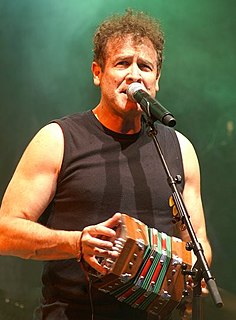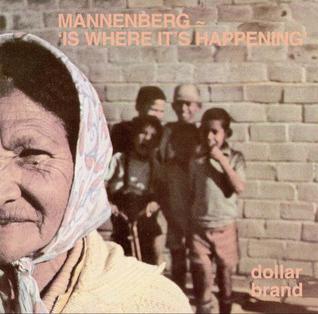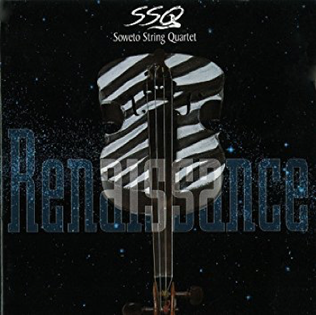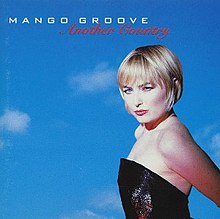
Hugh Ramapolo Masekela was a South African trumpeter, flugelhornist, cornetist, singer and composer who was described as "the father of South African jazz". Masekela was known for his jazz compositions and for writing well-known anti-apartheid songs such as "Soweto Blues" and "Bring Him Back Home". He also had a number-one US pop hit in 1968 with his version of "Grazing in the Grass".

Jonathan Paul Clegg, OBE, OIS was a South African musician, singer-songwriter, dancer, anthropologist and anti-apartheid activist, some of whose work was in musicology focused on the music of indigenous South African peoples. His band Juluka began as a duo with Sipho Mchunu, and was the first group in the South African apartheid-era with a white man and a black man. The pair performed and recorded, later with an expanded lineup.

The South African music scene includes both popular (jive) and folk forms like Zulu isicathamiya singing and harmonic mbaqanga. South Africa has a global music industry.
Another Country may refer to:

Claire Johnston is an Anglo-South African singer and songwriter. She is the lead singer of the South African fusion band Mango Groove.
Mango Groove is an 11-piece South African Afropop band whose music fuses pop and township music—especially marabi and kwela.

Freshlyground are a South African Afro-fusion band that formed in Cape Town in 2002. The band members have different backgrounds, including South Africa, Mozambique, and Zimbabwe. Freshlyground's musical style blends elements of traditional South African music, blues, jazz, and features of indie rock. They are best known for their performance "Waka Waka " with Colombian singer Shakira, which received worldwide recognition. The music video – featuring the group – also received over 3 billion views on YouTube.
Heat, Dust and Dreams is a studio album by South African artist Johnny Clegg and his band Savuka, released in 1993, produced by Hilton Rosenthal, co-produced by Bobby Summerfield. The album received a 1993 Grammy Award nomination for Best World Music Album.

"Mannenberg" is a Cape jazz song by South African musician Abdullah Ibrahim, first recorded in 1974. Driven into exile by the apartheid government, Ibrahim had been living in Europe and the United States during the 1960s and '70s, making brief visits to South Africa to record music. After a successful 1974 collaboration with producer Rashid Vally and a band that included Basil Coetzee and Robbie Jansen, Ibrahim began to record another album with these three collaborators and a backing band assembled by Coetzee. The song was recorded during a session of improvisation, and includes a saxophone solo by Coetzee, which led to him receiving the sobriquet "Manenberg".
Kwela Tebza is a South African Kwela musical group of three brothers, Mpho, Tebogo, and Tshepo Lerole. They play penny whistles.
Alan Lazar is a South African-born composer and novelist. He has written music for more than 50 films and TV shows, including a string of Netflix movies. He was a member of the South African band Mango Groove and is the author of the book ROAM. He became a US citizen in 2010.

The apartheid regime in South Africa began in 1948 and lasted until 1994. It involved a system of institutionalized racial segregation and white supremacy, and placed all political power in the hands of a white minority. Opposition to apartheid manifested in a variety of ways, including boycotts, non-violent protests, and armed resistance. Music played a large role in the movement against apartheid within South Africa, as well as in international opposition to apartheid. The impacts of songs opposing apartheid included raising awareness, generating support for the movement against apartheid, building unity within this movement, and "presenting an alternative vision of culture in a future democratic South Africa."

"Asimbonanga", also known as "Asimbonanga (Mandela)", is an anti-apartheid song by the South African racially integrated band Savuka, from their 1987 album Third World Child. It alluded to Nelson Mandela, imprisoned on Robben Island at the time of song's release, and other anti-apartheid activists. It was well received, becoming popular within the movement against apartheid, and was covered by several artists including Joan Baez and the Soweto Gospel Choir.

Mango Groove: Live in Concert is a concert video released by South African fusion group Mango Groove in 2011.

Mango Groove is the self-titled debut album of Mango Groove, a South African pop fusion band whose sound is influenced by township music. Seven of the eleven songs on the album were released as singles. The album sold extremely well, breaking national sales records and maintaining a high rank in the radio charts for a year. The band dedicated the album to Mickey Vilakazi, a bandmate who died in June 1988.

Bang the Drum is the fifth studio album by South African Afropop band Mango Groove. Released in September 2009, it was the band's first studio album since Eat a Mango in 1995.

Faces to the Sun is the sixth studio album by South African Afropop band Mango Groove. Released in October 2016, Faces to the Sun is a double album with more than a dozen featured artists. The first disc comprises renditions of major South African pop songs. Lead singer Claire Johnston described the selections as "personal favourites of ours" that are about what it means to be South African. The second disc features eight original songs, plus a remix of Mango Groove's cover of "Durban Road".

Eat a Mango is the fourth album by Afropop music group Mango Groove. It was released by Tusk Music in November 1995. In 1996, Eat a Mango won a SAMA in the category "Best Adult Contemporary Performance: English" at the second annual South African Music Awards. The band recorded music videos for three songs from the album: "Eat a Mango", "New World ", and "Right Time".

Hometalk is the second album by South African Afropop fusion band Mango Groove. The album was released in November 1990 by Tusk Music. It went gold upon release in South Africa, and has since reached platinum status. The title track, "Hometalk", was released as a single, followed by "Island Boy", "Taken for a Moment", and "Moments Away". The band recorded music videos for all four singles. One song, "We Are Waiting", was released several months early, in advance of Nelson Mandela's release from prison.

Renaissance is the second studio album by the South African quartet the Soweto String Quartet, released in October 1996 by BMG Records. It follows the national and international success of their debut album Zebra Crossing (1994), and was produced by Grahame Beggs. As with their previous album, Renaissance blends classical music with African pop and folk music, while also exploring new textures, with styles on the album including marabi, kwela and worldbeat. Quartet member Reuben Khemse described the album's themes as reawakening, revival and the dawn of new eras.















